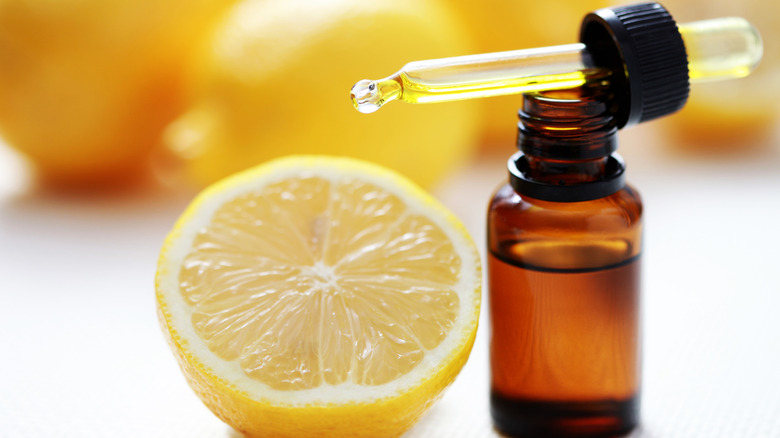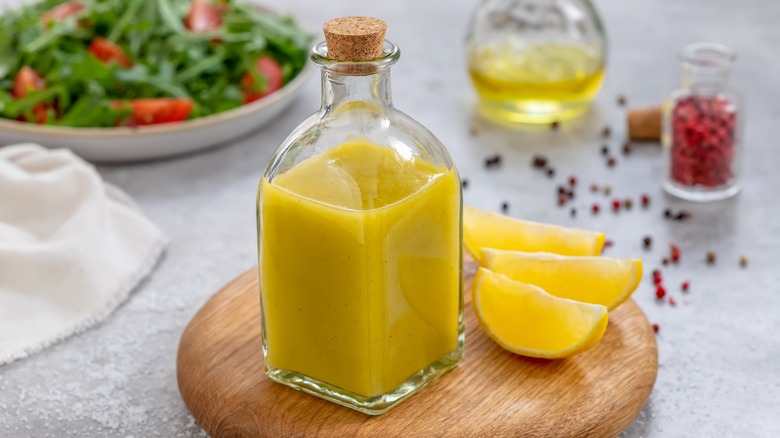Why You Should Be Using Lemon Extract For Flavorful Salad Dressing
Salads have moved far beyond their reputation as flavorless rabbit food. Even home cooks have learned that one of the keys to really enjoying salad is not so much in the produce or just adding chicken breast to make it tolerable, but whipping up a delicious, homemade dressing. Ditching the pre-bottled, shelf-stable stuff is the first step, but your salad experimentation shouldn't stop there. To make your next salad dressing over-the-top delicious, try adding lemon extract into the mix.
The basic components of any salad dressing or vinaigrette are fat, with olive oil being the most common, and acid. The acid can come from many elements, such as vinegar, wine, and of course, citrus, like lemons. But sometimes, just squeezing lemon juice into a dressing doesn't give the same oomph you might expect. That's because a lot of that tangy flavor isn't in the juice, but rather the peel. And that's where lemon extract comes in. Lemon extract is a highly concentrated, sour solution made from soaking lemon peels in alcohol, similar to the process for vanilla extract. This citrusy tincture packs a ton of flavor in each drop, and won't dilute your dressing the same way a juiced lemon might.
A little goes a long way
Lemon extract carries all of the flavors of fresh lemon, as well as the fragrance notes that are lost by manual squeezing. The extraction process is similar to that of lemon essential oils, which pull flavor and scent from the peel of the lemon, not the fruit. But unlike lemon essential oil, lemon extract is food-safe. And because its lemon and acid flavors are so concentrated, a little goes a long way. That means rather than tirelessly squeezing lemon after lemon, you should only need a few drops in your next salad dressing to give it some bright, zesty zing.
Another key benefit of relying on lemon extract over fresh lemons for your dressings? Lemon extract is shelf stable, so you don't need to stress about storing and using the fruit before it spoils. You can find lemon extract at most grocery stores, but you can also make your own. Simply peel a lemon with either a paring knife, vegetable peeler, or zester, being careful not to remove the pith, which is the bitter white layer just beneath the waxy yellow skin. Allow the peel to sit in a jar of the spirit of your choice (we recommend vodka) for 4-6 weeks. And there you have lemon extract — the key ingredient to tangy, delicious salad dressings and vinaigrettes.

